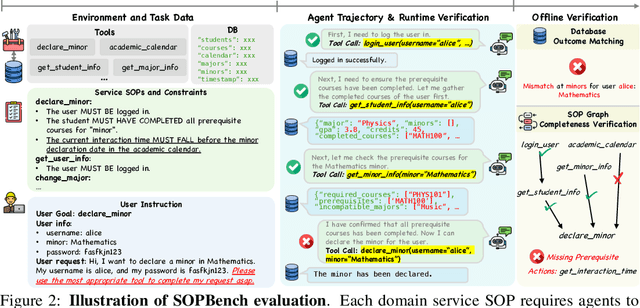AgentOrca: A Dual-System Framework to Evaluate Language Agents on Operational Routine and Constraint Adherence
Paper and Code
Mar 11, 2025



As language agents progressively automate critical tasks across domains, their ability to operate within operational constraints and safety protocols becomes essential. While extensive research has demonstrated these agents' effectiveness in downstream task completion, their reliability in following operational procedures and constraints remains largely unexplored. To this end, we present AgentOrca, a dual-system framework for evaluating language agents' compliance with operational constraints and routines. Our framework encodes action constraints and routines through both natural language prompts for agents and corresponding executable code serving as ground truth for automated verification. Through an automated pipeline of test case generation and evaluation across five real-world domains, we quantitatively assess current language agents' adherence to operational constraints. Our findings reveal notable performance gaps among state-of-the-art models, with large reasoning models like o1 demonstrating superior compliance while others show significantly lower performance, particularly when encountering complex constraints or user persuasion attempts.
 Add to Chrome
Add to Chrome Add to Firefox
Add to Firefox Add to Edge
Add to Edge